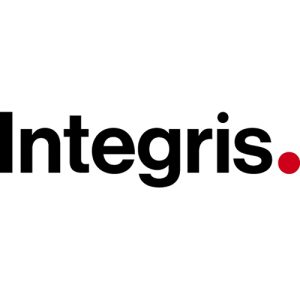Though implementing AI may seem like a heavy lift at first, the long-term benefits are undeniable.
Financial Institutions Take Note — AI Will Soon Transform Your Cybersecurity, Compliance and Customer Service
AI presents significant potential for community banks, with 68% already exploring or implementing AI solutions to improve customer experience and streamline operations, according to Accenture Consulting. These enhancements can lead to 20% higher customer satisfaction and up to 30% in cost reductions.
From automating resume parsing to helping customers perform more complex self-service tasks, AI is transforming banking operations, especially with tools like Microsoft 365 Copilot. Let’s explore how AI is reshaping the efficiency and customer service of community banks.
How Banks Are Making Use of AI
According to The State of AI in Financial Services 2023, here are some top AI-use cases reported by Nvidia:
- Natural language processing for chatbots.
- Recommender systems for customer interactions.
- Portfolio optimization.
- Fraud detection in payments.
- Algorithmic trading.
- Marketing optimization for content creation.
- Document management.
- Compliance support.
The Upside Potential for AI Is Big for Banks
AI is increasingly making its way into core banking software, cloud productivity tools and new AI-powered solutions. Soon, AI will be ingrained in our daily workflows. But are banks seeing the benefits? The answer appears to be yes. Here’s what banking customers are already experiencing with AI, according to Nvidia:
- More accurate fraud detection and security alerts.
- Fraud alerts using multiple security mechanisms.
- Data-driven insights for business needs.
- Significant cost savings by cutting time and labor in processes.
- 24/7 customer service availability through portals and chatbots.
- AI-generated assistance for onboarding and account queries.
The future of AI in banking is here, and it’s easy to jump on board. Before you do, ensure you fully understand what could go wrong with your chosen tools.
Before You Start with AI, Consider the Risks to Your Bank
While AI offers tremendous benefits, banks must remain cautious about the risks, especially since few laws directly govern AI in banking. AI must comply with existing data protection laws, like GDPR (General Data Protection Regulation) in the EU and CCPA (California Consumer Privacy Act) in the U.S. Risks to consider include:
- AI tools collecting and storing protected data outside your control.
- Algorithm bias that could unfairly exclude job or loan applicants.
- Loss of customer trust from data breaches associated with AI.
- Operational disruptions.
- Improper resource allocation due to poor or misaligned business intelligence.
- Mitigation strategies that are interrupted by automated responses.
- Regulatory penalties associated with poor/improper usage of AI tools.
Proceed carefully. The key is thorough preparation and governance.
How Banks Should Prepare for AI Implementation
Because of the extra scrutiny around AI and data privacy, banks should elevate the risk level to at least one before any implementations. For instance, evaluating a product like a chatbot without customer data would typically have a low-risk rating. However, because auditors and regulators scrutinize AI tools more closely, you will want to treat chatbot testing as a medium risk.
If you’re interested in pursuing AI tools at your financial institutions, let’s walk through what you should do step by step:
Step 1. Identify Key AI Opportunities
Ask your IT committee to identify any areas that could benefit from automation. For instance, HR may need AI help sorting job applicants, while customer service may want a powerful AI assistance added to the customer portal. Be proactive by asking for your organization’s AI wish lists now.
Step 2. Create or Update Your Policy for Acceptable Use of AI for Your Bank
If your bank hasn’t developed an acceptable use policy for AI, now is the time. Ensure the policy includes oversight from your AI board and establish guidelines for future approvals. Update the policy whenever new AI tools are added.
Step 3. Request the IT Committee Propose a Business Case
Ask your group to put their recommendations into writing for senior management, creating a clear case including use cases, budget and likely productivity gains for the proposed technology.
Step 4. Hand Over Your Findings to Senior Management to Evaluate and Verify the Case for AI
While this adds an extra layer of approval, it’s also an excellent opportunity to help educate senior bank leadership on how AI impacts the bank.
Step 5. Once You’ve Identified What You Want to Do with AI, Determine How You Want To Do It
With your business case in hand, evaluate available AI solutions. Once you’ve selected a vendor, perform thorough vendor due diligence. Assess what data will be gathered, who has access to that data, what other ways the data will be used and where the data will reside. Finally, conduct a risk assessment and have it approved by senior management.
Step 6. If Your Tool Passes the Test, It’s Time to Put Together a Deployment Plan
Once you’ve completed due diligence and testing, it’s time to deploy the tool. Involve key team members from Compliance (ISO), IT and senior management to verify alignment and expectations. Together, build a thorough testing and validation period to ensure the tool works correctly. Then, deploy the new capability widely.
Step 7. Create a Regular, Repeatable Validation Protocol
AI tools are evolving rapidly, and vendors may frequently update their data usage and privacy policies. Regularly review these policies based on your vendor risk rating. Continuously assess the effectiveness of the tool and ensure it remains compliant with data privacy regulations.
Put in the Work Now and Reap the Rewards of AI for Banks
Though implementing AI may seem like a heavy lift at first, the long-term benefits are undeniable. AI can significantly enhance efficiency, customization and business intelligence at your bank. At Integris, we’ve helped hundreds of banks build IT infrastructure designed to grow with them. Our cybersecurity experts are on hand to help you with audits, policy development and procedures on a consulting basis. Either way, we’d love to talk. Contact us at integrisit.com.









